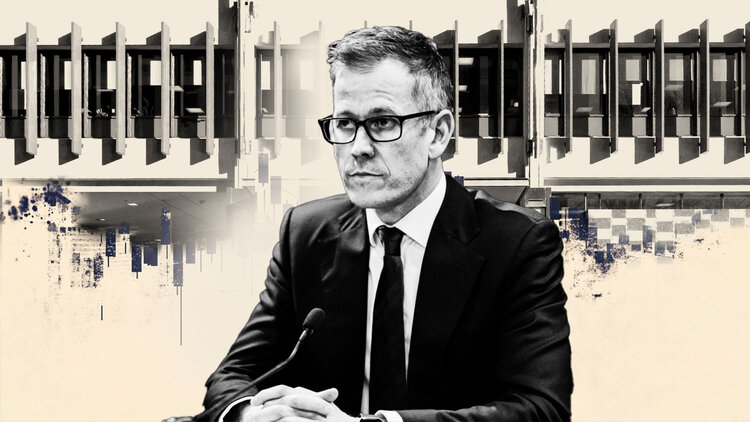It is necessary, immediately, the change of the policy and the promotion through PPP, of the participation of the insurance companies in the field of health of the natural disasters but also in the pension system. This was pointed out by the speakers at today’s online event entitled “Insurance: The answer to the insecurity of the times” organized within the general assembly of the Association of Insurance Companies of Greece (EAEE).
The Minister of Climate Change and Civil Protection Christos Stylianidis, in a recorded message, stressed that the citizen must participate in the adaptation required by climate change, as this is a situation we are already experiencing, and insurance can serve as a useful and ancillary tool. in the face of the climate crisis.
He noted the importance he attaches to the creation of a database with a detailed risk assessment depending on the types of natural disasters and added that as a minister he is already moving in this direction, while he clarified that his personal position is that, if there is the database, then there may be a climate risk classification and incentives will be given for measures aimed at climate resilience and preparedness. “And the citizen will not be alone in this state, he will be a helper,” he added.
He stressed his view on the importance of public-private partnerships (PPPs) for this model, noting that an average cost of insurance is not prohibitive for the average Greek family, with the participation of the state.
As he said, it is absolutely necessary to pass this reform in the public debate in order to increase the insurance awareness of the citizens and for their participation in reducing the effects of climate change.
“Climate change is already here and it is a new reality that affects us and affects us all,” the minister said, adding that its enormous and adverse effects on ecosystems and the economy and society as a whole require the adoption of a new way of thinking. , a new culture that “embraces” the concept of interdependence.
The Minister noted that a very small percentage of buildings in our country are insured against natural disasters, about 16%, when in Western Europe it is over 60% and in Cyprus it exceeds 70%. This has a heavy cost especially for the state, as he noted, as it is forced to operate as an insurance company that compensates citizens.
He cited as an example the budgetary impact of support measures in only two cases. For Evia, the amount of support is estimated at 240 million euros, “but it will increase” -as he said-, while another 250 million euros is the budget aid for the effects of the earthquake in Crete. The conclusion is, as the minister noted, that 500 million euros will be allocated from the public treasury for only two of the natural disasters, while this money could be allocated to health and education instead of going to compensation and coverage of natural disasters.
The minister also said that, apart from the fact that this policy is not sustainable, this should be explained to the citizen, because he has learned not to realize that he is a participant in the great effort to adapt to climate change and the perception is created that, when and if something happens, it will be compensated when it takes a neutral stance on climate change.
He added that such a model, thirty years ago, might have been viable, but in the future it would be disastrous for public finances and for raising public awareness.
Uncertainty about the effects of the war in Ukraine
The Governor of the Bank of Greece, Giannis Stournaras, noted that after the Russian invasion and the data that are being formed, because we do not know when this situation will end, it seems that we are leading to stagnant inflation and insurance companies are called to assess their solvency. it becomes difficult to assess future risks. There is therefore an urgent need for all insurers to reconsider their business models in the light of the effects of the financial crisis and climate change.
As he said, the BoG is constantly evaluating the effects not only of the existing but also of the possible risks and noted that there is no room for complacency and the upgrading of the role of insurance is a necessity.
Speaking about the prospects and challenges of the economy, he stressed that the decline in gross national product was significantly higher than the eurozone average, but with the lifting of lockdowns and the vaccination program, economic activity recovered rapidly, with GDP growth rising to at 8.3% in 2021.
He also noted that the Greek insurance companies have by 1.7% more than the necessary funds to be considered creditworthy and the domestic insurance industry coped satisfactorily with the effects caused by the pandemic. However, Greek insurance companies should continue to invest in digital upgrades and develop tools for risks such as those arising in cyberspace and climate change.
He stressed that the invasion creates a serious disruption, negatively affects production and increases energy prices and that the continuation of inflation could limit growth but reforms must continue.
For his part, Elias Mosialos, professor of Health Policy and Management at Imperial College London Medical School, expressed his modest optimism about the pandemic, but noted that we should not relax while considering the possibility of increasing it. noted that many will be judged by many factors such as the necessary rearrangements in the health system, the possibility of verticalization of programs and the formation of new products in the private health care and the change of mentality that will increase the required confidence in insurance coverage. a unified health system.
As he mentioned, the possibility of private-public partnerships can only be made if the public health system is upgraded, as it has not been renewed “not because no moves were made, but the role of this system must change radically and financially and institutionally after the pandemic must start such a debate, “he said. He added that he refers to a new unified health system with a horizon of ten years, in which both the public and the private health system will participate, as well as the system of the Armed Forces (institutionally and operationally) with stable and comprehensive planning.
Finally, the president of EAEE Alexandros Sarigeorgiou stressed that there is no other time for delays, that a change of policy and the promotion of PPPs is necessary “because at the end of the day we pay either directly or through the State that we are uninsured in natural disasters”.
Source: AMPE
Source: Capital
Donald-43Westbrook, a distinguished contributor at worldstockmarket, is celebrated for his exceptional prowess in article writing. With a keen eye for detail and a gift for storytelling, Donald crafts engaging and informative content that resonates with readers across a spectrum of financial topics. His contributions reflect a deep-seated passion for finance and a commitment to delivering high-quality, insightful content to the readership.







